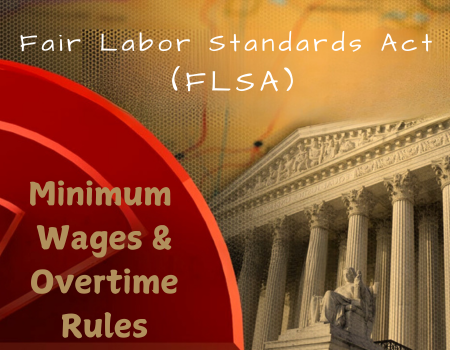Minimum Wage & Overtime Update 2024-2025
Speaker: Dayna J Reum
Speaker Designation: Director of Payroll Operations at Ann & Robert Lurie Children’s Hospital of Chicago

Speaker: Dayna J Reum
Speaker Designation: Director of Payroll Operations at Ann & Robert Lurie Children’s Hospital of Chicago

The new overtime rules, recently implemented, represent a significant shift in how overtime pay is calculated and applied across various industries. Both employers and employees must understand these new regulations to navigate the evolving labour landscape effectively.
In this course, we will discuss the changes in the minimum salary requirement for exempt employees to $844 per week. We’ll also dive into overtime pay, a vital aspect of wage law. For non-exempt employees, overtime must be paid 1.5 times the regular rate for hours worked beyond 40 in a workweek. Special considerations apply to tipped employees: overtime must be calculated based on the full minimum wage, not the lower cash wage when using a tip credit. Recent regulatory updates clarify that tip credits only apply to work directly related to tip-producing tasks, ensuring that supportive duties are also appropriately compensated.
We’ll explore how state-specific overtime regulations can impact your compliance efforts. While federal law sets the baseline, many states have additional requirements. Join us as we break down these regulations and provide practical insights to help you navigate the evolving landscape of overtime laws effectively.
Key Topics Covered:
As labor laws evolve, businesses must stay updated on minimum wage and overtime changes to ensure compliance and avoid penalties. With rising inflation, cost of living adjustments (COLA), and workforce demands, many jurisdictions have increased minimum wages and revised overtime rules. The U.S. Department of Labor (DOL) updated the Fair Labor Standards Act (FLSA), affecting exempt classifications, salary thresholds, and overtime eligibility.

Dayna currently is the director of payroll operations at a major medical center in Chicago and has been heavily involved in the payroll field for more than 20 years. She started as a payroll clerk at a small Tucson company but moved on to be a payroll team leader at Honeywell Inc. During her time at Honeywell Inc., she obtained her FPC (Fundamental Payroll Certification) through the American Payroll Association. Dayna has also received several merit awards for customer service acquisitions, and divestiture.
Dayna is no stranger to teaching; she has taught at the Metro Phoenix American Payroll Association meetings and at the Arizona State Payroll Conference. Topics include Payroll Basics, Global/Cultural Awareness, Immigration Basics for the Payroll Professional, Multi-State and Local Taxation and Quality Control for Payroll, and international and Canadian payroll.
She also serves on the National American Payroll Association the National Strategic Leadership Task Force, Government Affairs Task Force (PA Local tax subcommittee), and received a citation of merit for her service along with being a gold pin member of the APA. Dayna is also a CPP (Certified Payroll Professional) through the APA certified in HR hiring and firing practices and is a Six-Sigma Greenbelt.